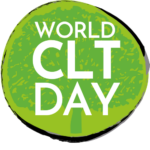Ancient Grains
Outside the United States, the notion of treating land differently than what is built on it – a principle at the heart of the modern-day community land trust – has a long and noble pedigree. Land has been viewed by a number of cultural and religious traditions as a bountiful gift that was given to all of humanity by a generous God. Land is a sacred trust. It may be temporarily used by individuals, but not permanently owned.
In ancient India, there was a Vedic prohibition against the deeding of land. In ancient Israel, the Torah revealed Yahweh commanding that “The land is not to be sold in perpetuity, for the land is mine; with me, you are but aliens and tenants” (Leviticus 25: 23). In a similar vein, philosophers of the early Christian church challenged the Roman custom of individuals holding land as property in fee simple absolute. They considered land to be a communal means of life and livelihood that should be available to the entire community.
Many native peoples have had a similar sense of land, rivers, mountains, and sky being sacred gifts that are shared by all and belong to none. Indeed, for them, the whole idea of owning land seemed ludicrous. Chief Seattle’s eloquent letter of 1854, responding to a request from the federal government to purchase tribal lands in the Pacific Northwest, captured this sentiment well:
The President in Washington sends word that he wishes to buy our land. But how can you buy or sell the sky? The land? The idea is strange to us. If we do not own the freshness of the air and the sparkle of the water, how can you buy them?
There is a second ethical strand running through many cultural and religious traditions that finds nothing inherently wrong with the ownership of land; indeed, the validity of all private property is affirmed. But accumulating more than what is needed for one’s personal wellbeing is deemed immoral. Worldly goods should be used not only for the betterment of their owners, but also for the benefit of the larger community, present and future. This is especially true for limited resources like land and water, where concentrated ownership by a privileged minority can deprive the majority of what they need to live and to prosper. In the words of Saint Augustine, “He who possesses a surplus, possesses the goods of others.”
Generations later, this ethic found an Asian echo in Mahatma Gandhi’s concept of “trusteeship.” Despite his personal asceticism, Gandhi did not assume that others would eschew material goods, nor did he condemn the private ownership of land. What he condemned, in a country of vast poverty that was still emerging from a hundred years of British colonial rule, was accumulation in excess of one’s personal needs. In his words:
What belongs to me is the right to an honourable livelihood, no better than that enjoyed by millions of others. The rest of my wealth belongs to the community and must be used for the welfare of the community.
Or, as the Roman Catholic Church once put it, in a series of encyclicals handed down between 1891 and 1991, there is a “social mortgage” on all private property.
The community land trust is hardly the first institution to treat land as something that should be held in stewardship for the entire community, present and future. Nor is it the first to discover an ethical justification for limiting the equity that individuals may remove from property in order to guarantee access for persons in need. These ethical precepts have been around for a very long time.
Further Readings
- C. Avilia, Ownership: Early Christian Teaching (Maryknoll NY: Orbis Books, 1983).
- V. Bartlett, “The Biblical and Early Christian Idea of Property,” in A.J. Carlyle (ed.), Property: Its Duties and Rights (London: McMillian, 1915).
- J.W. Bruce, “A Perspective on Indigenous Land Tenure Systems and Land Concentration,” in R.E. Downs and S.P. Reyna (eds.), Land and Society in Contemporary Africa (Hanover NH: University Press of New England, 1988).
- Catholic Bishops of the Heartland, Strangers and Guests, Toward Community in the Heartland: (Sioux Falls SD: Heartland Project, 1980. Statement on Land Issues signed and issued by Catholic bishops representing Colorado, Illinois, Indiana, Iowa, Kansas, Minnesota, Missouri, Nebraska, North Dakota, South Dakota and Wyoming).
- R.C. Ellickson and C. Thorland, “Ancient Law: Mesopotamia, Egypt, Israel,” Chicago-Kent Law Review 71-321-411, 1995.
- Mohandas K. Gandhi, Trusteeship (Ahemadabad, India: Navajivan Trust, 1960).
- Vicki Lindsay, “Cultural & Religious Roots of the Community Land Trust Movement” (Unpublished essay, 2001).
- D. Novak, Jewish Social Ethics (New York: Oxford University Press, 1992).
- D.J. O’Brien and T.A. Shannon (eds.), Renewing the Earth: Catholic Documents on Peace, Justice, and Liberation (Garden City NY: Image Books, 1977).
- Peter W. Salsich, “Toward a Property Ethic of Stewardship,” Pp. 21-40 in Charles Geisler and Gail Daneker (eds.). Property and Values: Alternatives to Public and Private Ownership (Washington DC: Island Press, 2000). Reprinted in J.E. Davis (ed.), The Community Land Trust Reader (Cambridge MA: Lincoln Institute of Land Policy, 2010).
- Richard Worrell and Michael C. Appleby, “Stewardship of Natural Resources: Definition, Ethical and Practical Aspects,” Journal of Agricultural and Environmental Ethics, Vol.12, Issue 3, 2000: 263-277.

